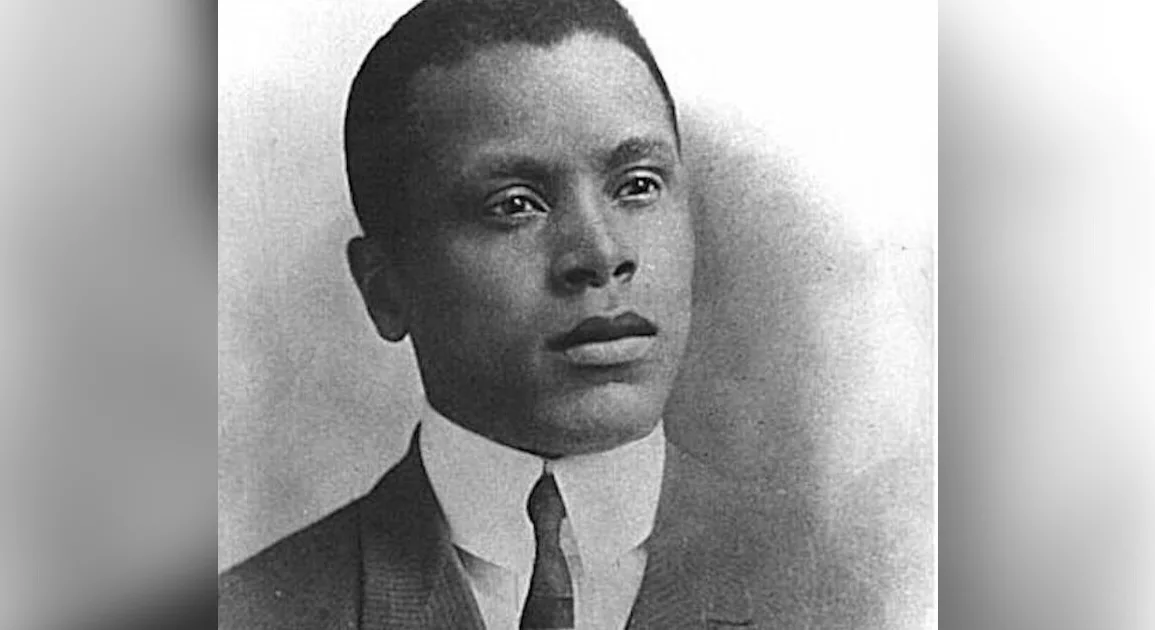“These were the first films that actually called out social injustice in filmmaking.”
-Amy Gerber-Stroh, associate professor of film at Hollins University Roanoke
VPM’s Hidden History with Brian Bullock peeks into the past to uncover the story behind the country’s first Black filmmaker.
Roanoke, Virginia is known for its endless trails and beautiful scenery. The city, located in the Blue Ridge Mountains, was also home to renowned African American filmmaker Oscar Micheaux. Born to formerly enslaved parents, Micheaux became a powerhouse in the filmmaking community — having produced over 44 films in his lifetime, with up to six of his full-length features being based in Roanoke.
However, Micheaux’s story didn’t begin in Roanoke. He and his 11 siblings grew up in Great Bend, Kansas and the journey to Virginia wasn’t a quick one
Amy Gerber-Stroh, an associate professor of film at Hollins University in Roanoke, shared some of her knowledge on Micheaux’s story and his work.
“He wrote this novel called The Homesteader and it became a best-seller,” she said. “A film studio in Chicago wanted to buy the rights to make it into a movie. And so, when Micheaux heard about this he said, ‘Wait a minute, I wanna make it myself.’”
The journey from writing novels in Kansas to making groundbreaking films in Roanoke wasn’t instant, though. “Micheaux was an amazing entrepreneur, and he was always on the search for more funding, more money for his films,” Gerber-Stroh said. “So, he traveled through the Midwest and eventually ended up in Roanoke — knowing that there were several Black businessmen and businesswomen that had money to fund his films.”
Between 1923–1925, the Strand Theater housed the Micheaux Film Corporation while he found lodging across the street at the Hampton Hotel (now TK TK TK). Local historian Jordan Bell offered up some information about this area in Roanoke known as Gainsboro, where Micheaux and his films made quite an impact.
“Gainsboro was the Black Wall Street of Southwest Virginia. At one point, there were over 250 businesses in Gainsboro,” Bell said. “Oscar Micheaux, he was a filmmaker, a very busy individual, but there was everything going on around him, so he fit right in.”
Micheaux’s films were different from most movies of its time. He portrayed Black actors in heroic social roles with action plots — covering controversial subjects on everything from civil unrest to segregation. In 1919 he wrote, directed and produced his first feature length film: The Homesteader.
Oscar Micheaux’s films have often been coined “race films,” a designation Amy Gerber-Stroh and other film scholars use to describe a film funded, crewed and worked on entirely by Black people: “The producers are all Black, the funding is from Black businesspeople. The final element of a race film is really the content that depicts African Americans in a better light than how Hollywood had been showing Blacks in film at the time.”
Micheaux’s films also meant a great deal to the Black community at the time. “[His films] really went into the issues that were important to the African American community,” Gerber-Stroh said. “Race, discrimination, also films about skin color — what that means, all the complexities of that — and it was something that was really important in that era.”
1920’s Within Our Gates, Micheaux’s second produced film, is sometimes considered his response to the 1915 D.W. Griffith film Birth of a Nation. However, Micheaux maintained that it was a response to the widespread social instability following World War I. Films like this, and the passion that Micheaux had for telling the stories of Black Americans, encouraged many of Roanoke’s Black professionals to invest further in him. Many even bought stock in his corporation and five of them served on the board of directors.
An important reflection here is that 100 years ago, there were Black individuals with the means to invest into a film studio and support Micheaux in his history-making endeavors, which was not a common occurrence at the time.
Micheaux’s impressive work didn’t end with filmmaking. He also wrote and self-published several novels, including The Conquest: The Story of a Negro Pioneer, and The Case of Mrs. Wingate. Just as in his films, Micheaux sought for his books to counter the negative and demeaning portrayals of African Americans.
“These were the first films that actually called out social injustice in filmmaking, in films and cinema, talking about lynching, violence, all the evils of Jim Crow. Micheaux was courageous enough and taking risks to tell these stories. He was making these films in a way that caused white fear and lots of his films were banned” Amy Gerber-Stroh said.
Gerber-Stroh continued, “Micheaux’s films are extremely relevant [today]. We have over 40 films that he’s made to look at and to really study what it was like to be an African American at that time — and also learning the history of racism in this country. I think we have a lot to learn from these films.”
Oscar Micheaux died while living in North Carolina in 1951 at the age of 67. His career spanned 30 years and over 40 films. He was a trailblazer and a history maker whose legacy is still felt to this day.
You can learn more about Oscar Micheaux and his legacy in the latest episode of “Hidden History with Brian Bullock” on the new VPM History YouTube Channel. You can also check out the Hidden History website to catch up on past episodes.
And stay tuned for more Hidden History!



